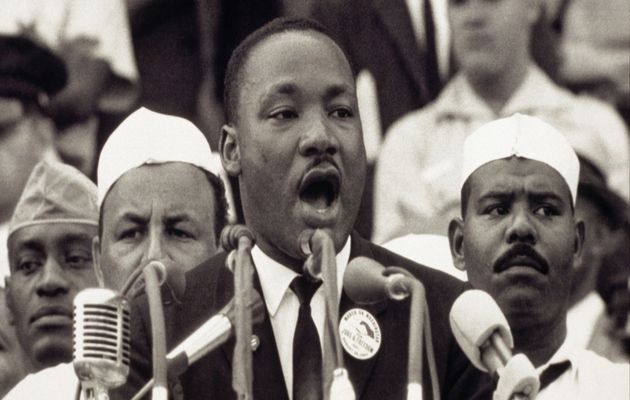“I have a dream…”
On August 28, 1963, Martin Luther King talked in front of 200,000 people, claiming more freedom and justice, to build a better world.
Protestante Digital · WASHINGTON D.C. · 28 AUGUST 2015 · 19:50 CET

Fifty two years ago, the evangelical and political activist Martin Luther King, gave a speech that was crucial for the American history.
”I have a dream”, his most famous words, were pronounced in front of thousands of people who marched that day, claiming for a change in a country damaged by racism and social inequality.
Martin Luther King Jr was born in Atlanta (Georgia), on January 15th, 1929. He was a Baptists pastor, just like his father and grandfather. His faith influenced his social and political activism.
In 1954, King was appointed as pastor of the Dexter Avenue Baptists Church in Montgomery, Alabama, where he led the boycott against the Montgomery bus. In 1957, he was one of the founders of Southern Christian Leadership Conference (SCLC), created to organize to fight for civil rights.
King Jr was raised in the “white liberal theology”, which gives a lot of emphasis on social activism and goes beyond the religious orthodoxy, as Jose de Segovia explained in an interview with Protestante Digital.
“But in the difficult times of his social activism, he always came back to his orthodox evangelical faith”, so that Segovia sees him as a continuous seeker of the faith he experienced in his childhood, “always living in between both experiences: the intellectual and rational which doubts, and the personal experience which aims to root in the basics of the Christian faith in Jesus.”
A HISTORICAL SPEECH
All that is clearly shown on his historical speech whose words “I have a dream” are still remembered after all these years. According to Jose de Segovia, it was not only a political and social speech, but it also had many theological implications.
“It is full of a kind of hope that can only come from a divine origin, with sentences that have the strength of the Biblical words, and a vision, I believe, it came from God”, Segovia stated.
In the midst of Malcolm X radicalization, only King´s faith helped him to go on, and Segovia believed that “should help us to see God´s providence, on how He paved the way between the white lukewarmness and the black violent radicalism.”
“We could say that it is the social vision of the Gospel, and the social injustice which contradicts the Biblical message, what made MLK to fight against the social injustice towards the blacks”, he added.
King saw all human beings equal, and looked for a peaceful way to fight for civil rights which was very difficult, and put a “huge pressure” on him. But Segovia explained that we should recognised that there was a Christian inspiration in his life and activism.
Although he also had doubts about some aspects of Christian faith, he, for sure, “lived his activism as a mission from God.”
HIS LAST SPEECH
If in “I have a dream”, King showed us his fight and hope, MLK last speech revealed us someone who, after all his trials, put his faith in God.
The night before his murder, King talked at Mason church: “I would like to have a long life, but that is not important, I simply want to make God´s will.”
Jose de Segovia reminded us that, in a prophetic way, he also said:” God has allowed me to go to the top of the mountain, to see the Promised Land. It is possible that I would not go there with you (but) I am happy tonight. Nothing worries me, I do no fear anyone, and my eyes have seen the glory of the coming of God.”
This confirms, Segovia argued, that “MLK is not the young man with doubts of the beginning of his public life, but the crisis and his weaknesses have led to root on God´s hope and the mission, with his contradictions and faults, fighting against the sin of racism.
“He was clearly used by God´s providence to turn around the unfair situation that black people had in United States”, Segovia concluded.
Published in: Evangelical Focus - cities - “I have a dream…”
